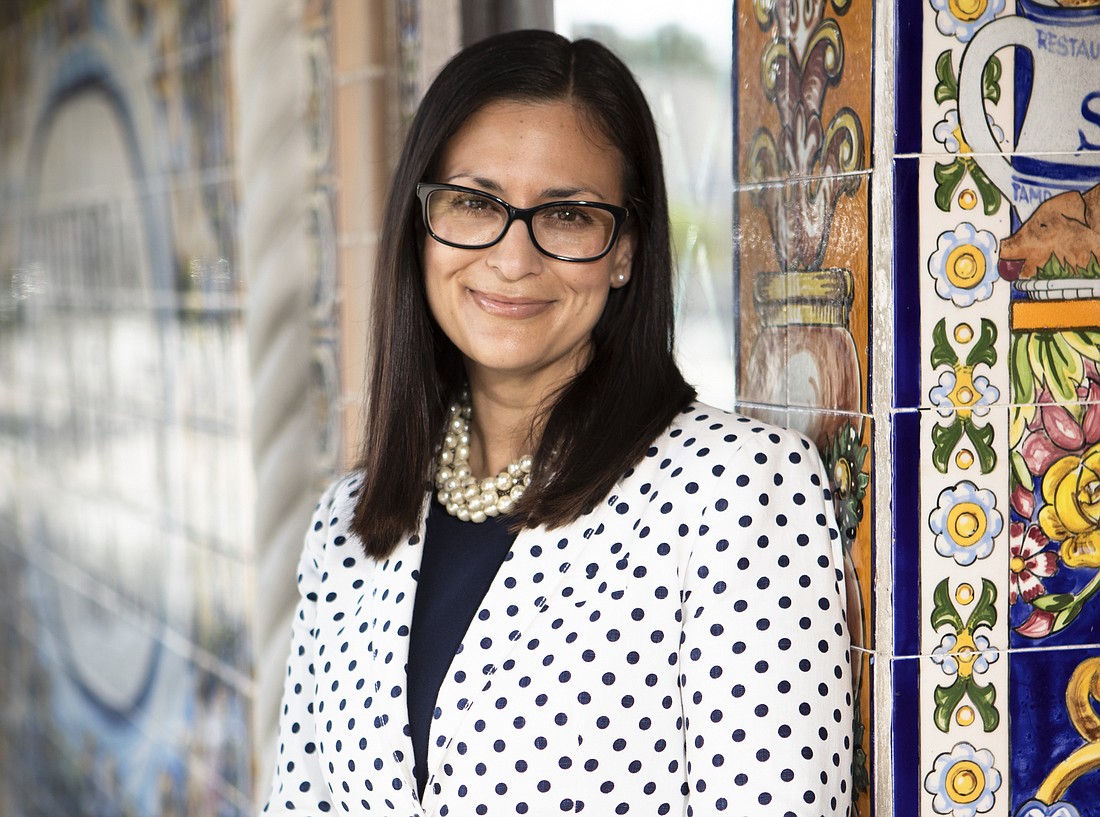- July 26, 2024
-
-
Loading

Loading

According to Tampa accountant and entrepreneur Michelle Delker, the term “chief financial officer” is one of the most confusing aspects of her newly launched business, The William Stanley CFO Group.
Considering the name of the company, that’s a bad thing, right? Not necessarily, she says — it’s more of an opportunity to educate clients as to what a CFO does and why they might not need one in-house and instead could benefit from a fractional CFO service, which is exactly what Delker’s firm offers.
“I think there’s a misconception about what a CFO is,” says Delker, 43. “They think, ‘Oh, you’re my tax person, or you’re going to lead my audit.’ Well, of course, those are baseline expectations. But in reality, I’m your comprehensive partner and I bring a completely different perspective than a lot of other folks on the C-suite team.”
Delker’s resume is littered with experience in roles such as staff accountant, senior accountant, controller, finance and accounting director and, yes, CFO. She’s spent her entire career in the Tampa Bay area with a variety of companies in different sectors, including some publicly traded firms.
“My last organization was a $250 million revenue company,” she says. “It was probably the education of a lifetime — the culmination of my actual education and all my experience. What it taught me is that there is a significant need in the market for organizations that don't have an appetite for a permanent, full-time CFO.”
In Delker’s view of the CFO role, a business is like a human body: The finances are the skeleton, underlying everything else and lending context to business operations — the flesh on the bone.
“Understanding the inner workings of the business lets you see where the opportunities are,” she says. “When you’re looking at the numbers, you’ve got the story or the spirit. Understanding the financial component, you can step in and pinch hit in almost any situation.”
Inspired in part by Tampa Bay’s transformation into a mecca for entrepreneurs and startups, Delker saw an opportunity to strike out on her own and in February launched The William Stanley CFO Group. The moniker is derived from the first names of her father and father-in-law, respectively.
“My dad gave me the unwavering belief that there was nothing that I couldn't do, that I could accomplish anything I wanted,” she says. “He honed and helped solidify the way that I think from a financial perspective. And then my father-in-law is an incredible professional, but also just a stand-up family guy who helped show me that the most important things are outside of my professional career.”
Delker’s father passed away in February 2022, and so her new venture is a way to honor his legacy. “He has been such an incredible influence in my life and my career,” she says.

The William Stanley CFO Group offers a highly customizable approach to fractional CFO services. Delker — at the moment the company is a one-person operation — says she’s available for project-based contracts that have finite beginning and end dates, as well as recurring engagements of a longer-term nature. She recommends the former, according to the company’s website, “for any enterprise requiring additional bench strength,” while the latter is "best suited for enterprises with more than $15 million of annual gross revenue and lean finance departments, without a permanent, full time CFO.”
Recurring engagements are typically at least a year in length, Delker adds, and can carry a monthly fee of $10,000-$15,000. That number can vary greatly depending on the client company’s size and complexity, the current state of its financials and the strength of its existing finance team.
“The goal is not to collect a fee — it’s to assist in the betterment of the organization,” she says. “Everybody should leave the engagement feeling like they’ve gotten something valuable from it.”
A third level of service, Delker adds, is available for smaller-scope projects that might require only a few hours of work, such as correcting errors in a company’s inventory costing system. She bills on a hourly basis for such jobs but says they can lead to longer-term relationships and future work.
Because her business is so new, Delker is reluctant to disclose and project revenue, but she says one of her smaller clients is a $10 million company.
“My goal was to start with a handful of clients with whom I could develop meaningful relationships and add the necessary value,” she says. “That would be an appropriate transition for me.”